How to Shop Eco-Friendly Beauty, According to Sustainability Experts
You can be glam and green at the same time.
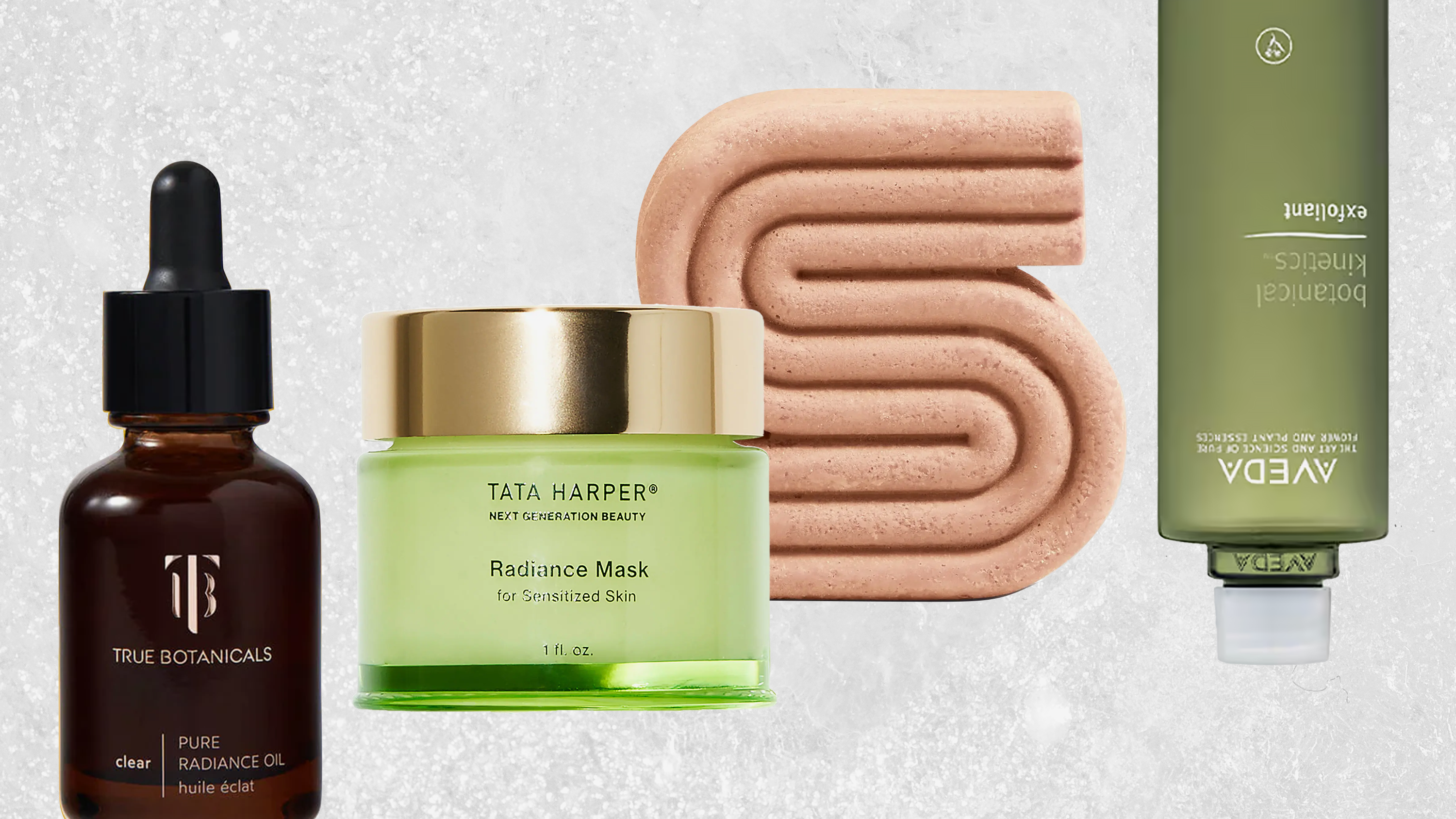

Today, more consumers than ever are choosing to opt for a sustainable beauty routine. Issues such as climate change, animal cruelty, and ocean pollution have impacted the way beauty brands formulate and market their products, evidenced by the increasing number of companies with B-Corp certifications, Leaping Bunny accreditation, and climate pledges. But with greenwashing at an all-time high, how can you make sure your beauty products are truly eco-friendly?
According to sustainable beauty expert Kristen Arnett, actively choosing to buy from brands that care about the environment is a powerful first step. "These are micro-decisions that we can make as consumers," she explains. "I can see how a consumer might say, Why would I bother? Part of why you bother is because some companies do care and are making a difference. When you choose them and involve yourself in sustainability, you can help move the needle towards more sustainable corporate practices."
Ahead, our favorite products from brands that are forging towards a cleaner, more ethical world. Plus, Arnett and fellow sustainable beauty expert Ashlee Piper talk about how to live and shop more sustainably.
Best Sustainable Beauty Products
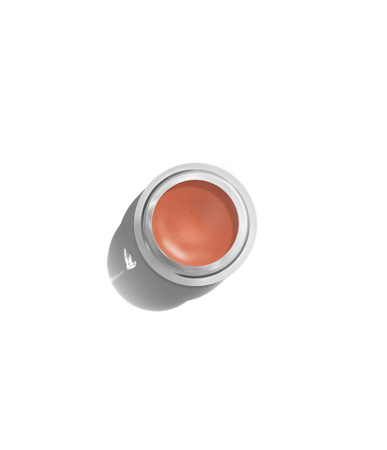
Arnett recommends this cheek and lip tint, noting that it is multi-use and comes in a refillable, reusable glass pot. But just because the formula is versatile, doesn't mean it doesn't deliver: It has a buildable consistency that maintains a highly pigmented finish. Aleph also has a B-Corp Certification and is a member of the Sustainable Business Network.
Pros: Expert-approved; plastic-free; versatile
Cons: Small container and amount of product
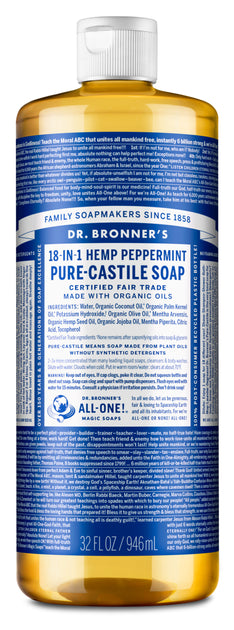
Consider making swaps not just for your beauty routine, but also around your home. Piper is a big proponent of Dr. Bronner's refillable soap for its ability to multitask. "For 20 years, I have been using Dr. Bronner's liquid soap for everything," she says. "I wash my makeup brushes with it, I wash myself with it, I refill my hand soaps with it. I use it as laundry detergent, a dish soap, a dog shampoo—all the stuff."
Pros: Expert-approved; multi-purpose; affordable; vegan; Leaping Bunny certified; comes in several scents (including unscented)
Cons: Comes in a plastic bottle
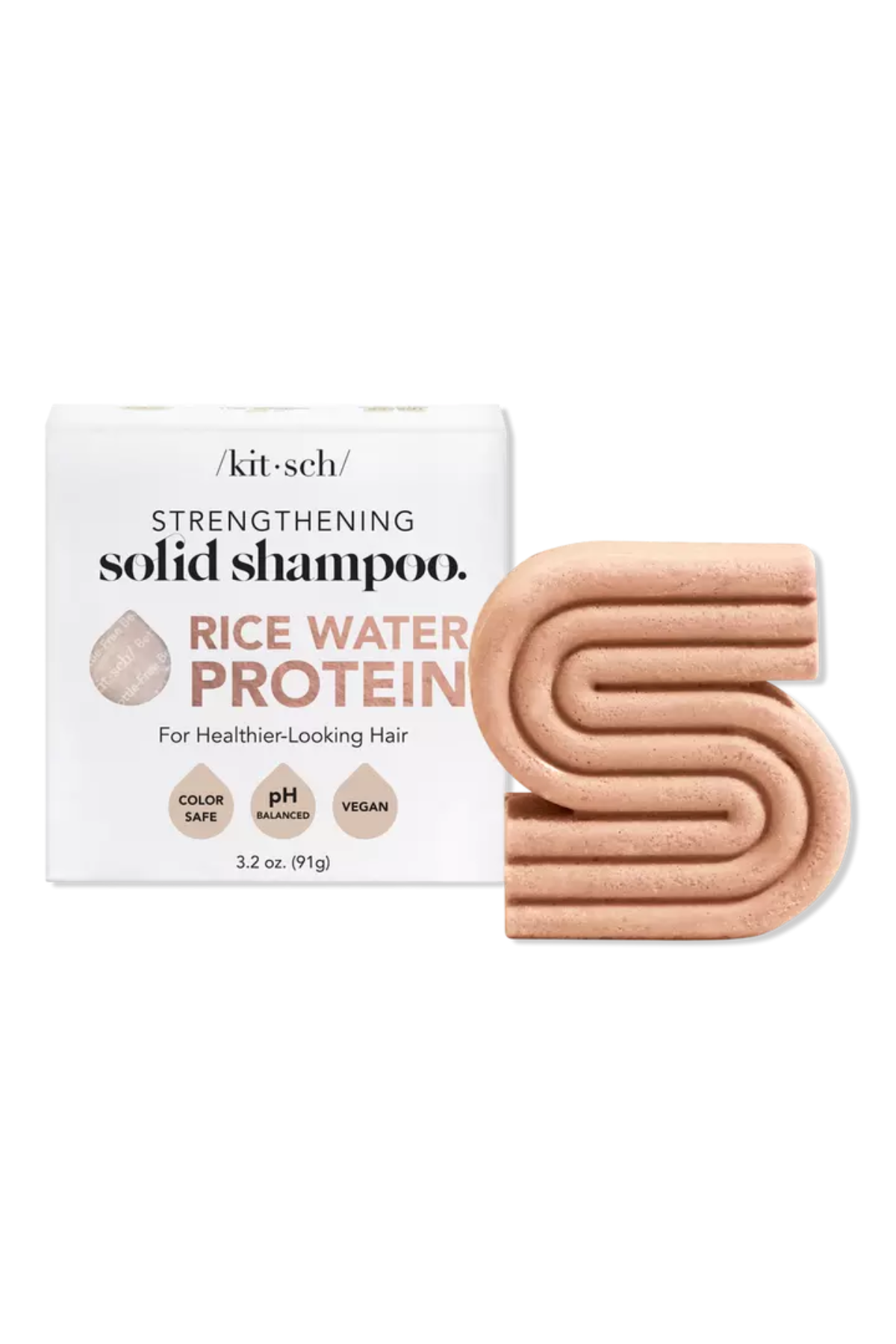
This shampoo bar is packaged without plastic and is Leaping Bunny-certified. The shampoo promises to cleanse your scalp without stripping it of essential moisture, creating an optimal environment for healthy hair growth. Plus, Kitsch partnered with 4Ocean, a popular accessory brand focused on raising money to rid the ocean of plastic waste.
Pros: Leaping Bunny certified; no plastic packaging; color-safe
Cons: May not be moisturizing enough for high porosity or damaged hair
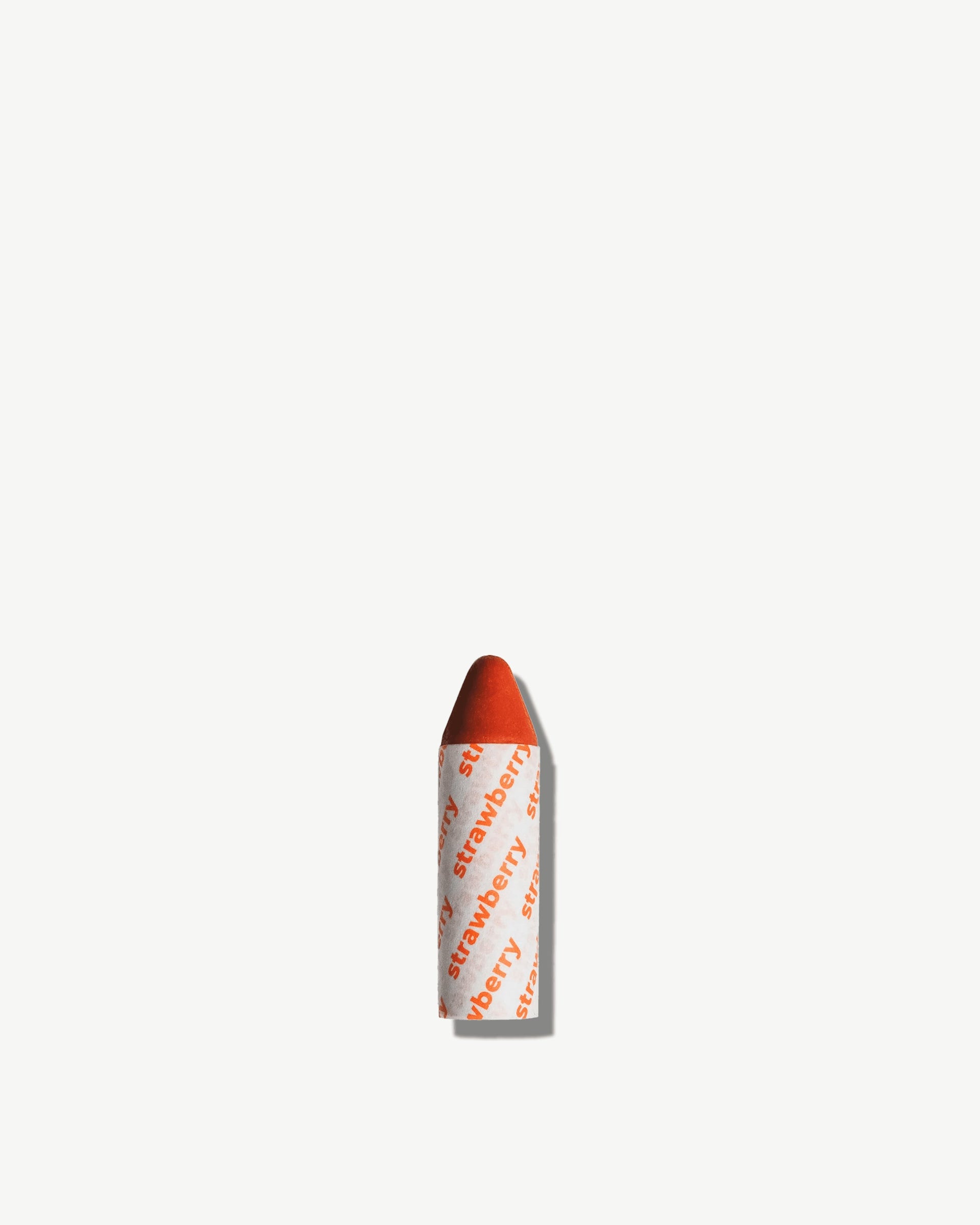
Arnett highly recommends Axiology for all age groups, but she claims it's especially great for the 40-and-over crew because the matte finish complements oilier, aging skin. This particular crayon, which Arnett uses regularly, can be used on the eyes, lips, and cheeks. "They're a zero-plastic company, and they're committed," she says. And it's so cute—it's like a pushup pop!"
Pros: Expert-approved; BIPOC-owned; plastic-free; versatile; female-first; versatile
Cons: Slightly delicate formula
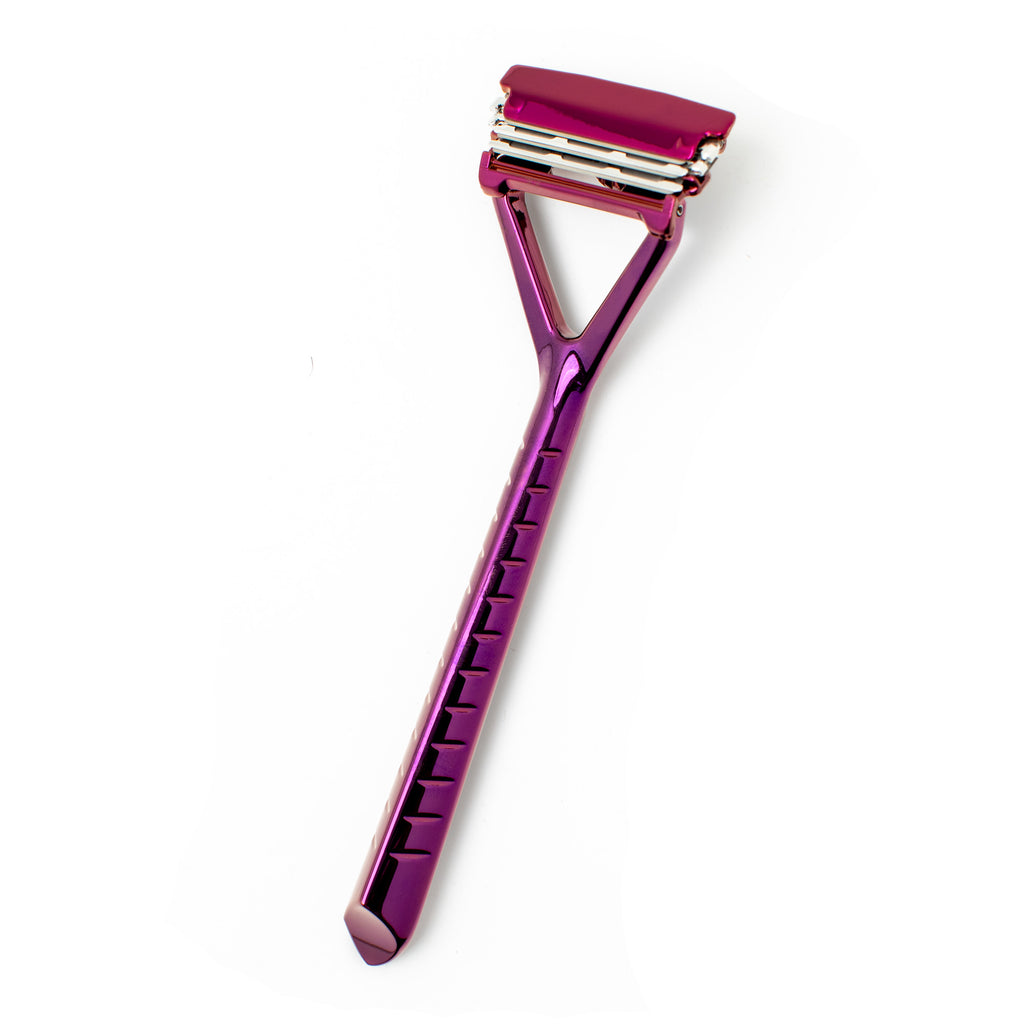
"I use Leaf Shave Razor like a safety razor," Piper attests. "They've been around for a while and have a three-blade razor that you refill with safety blades." The chic razor also comes in eight different colors, from neutrals to vibrant hues.
Pros: Expert-approved; long-lasting; customizable
Cons: Expensive
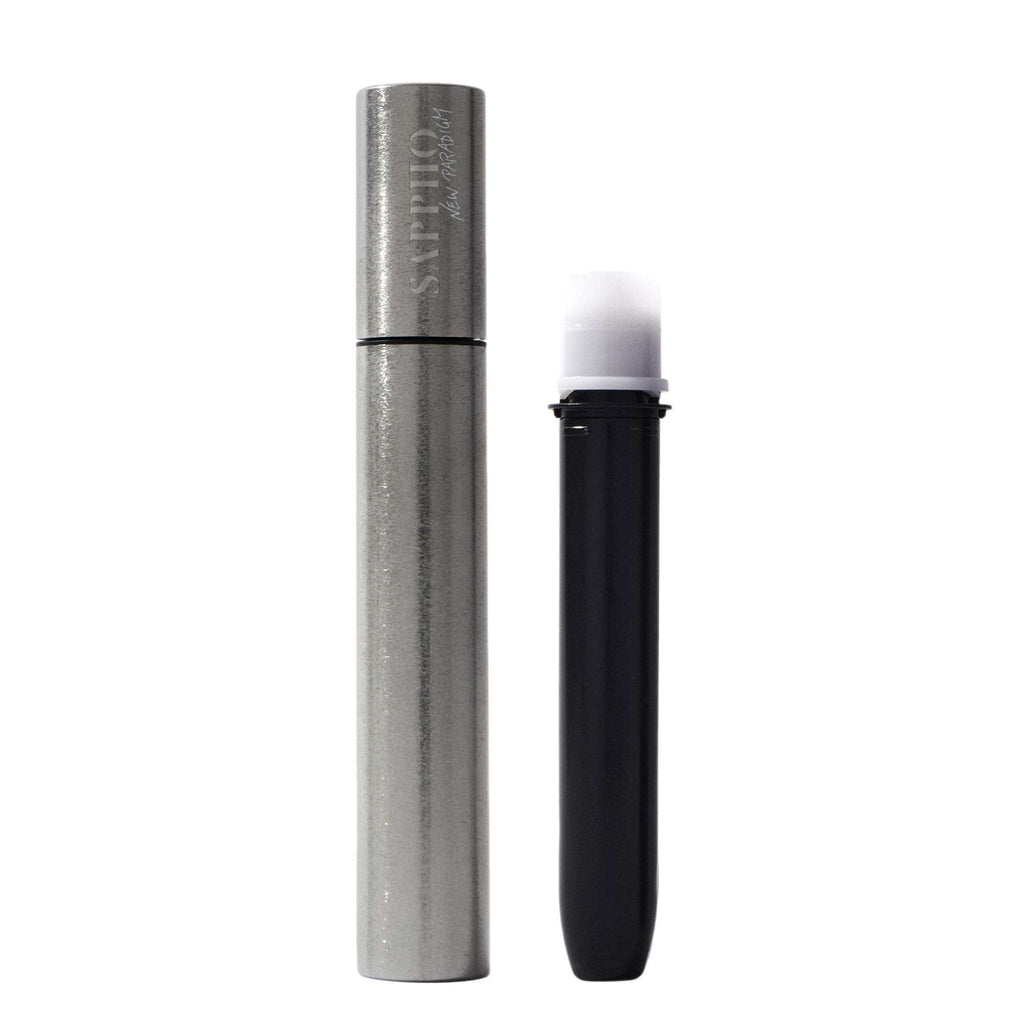
Just because something is biodegradable doesn't mean it will dissolve in your hand, says Arnett. For instance, this mascara is refillable and boasts a formula made from clean ingredients, but it still delivers a burst of volumizing, thickening pigment. "Sapphno is one of my favorite brands," Arnett gushes. "They're really a forerunner in sustainable ingredients formulation beyond anything else."
Pros: Expert-approved; refillable; durable packaging; minimal plastic
Cons: Plastic spoolie; inner, replaceable tube generates some waste
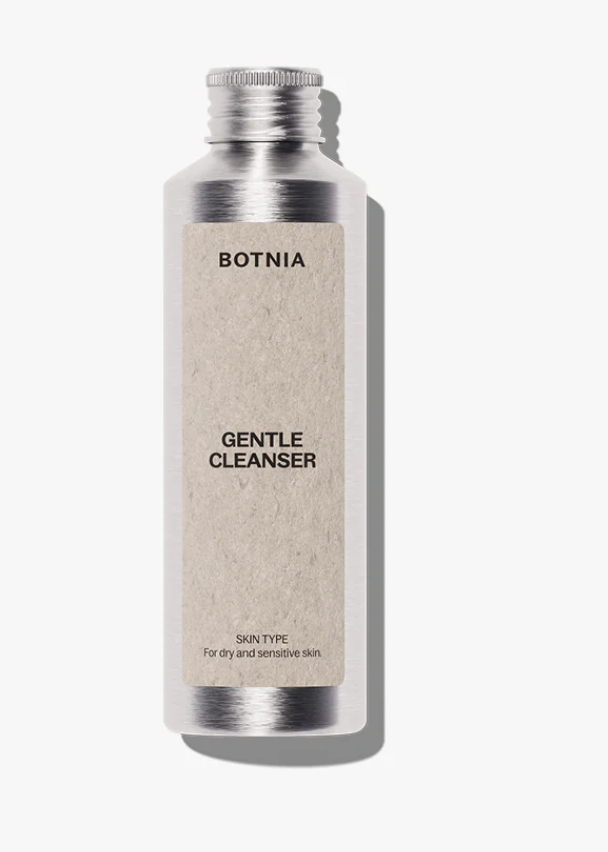
Botnia, one of Arnett's favorite brands, makes sustainably sourced products in recyclable aluminum packaging. This cleanser, in particular, is formulated with dry and sensitive skin in mind, and it comes in a handy travel size so you can stay plastic-free on-the-go.
Pros: Expert-approved; recyclable packaging; affordable
Cons: Some users may feel uncomfortable with aluminum
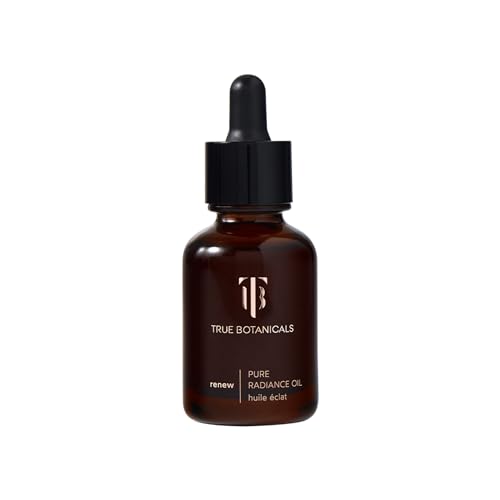
Not only is True Botanicals Leaping Bunny certified, but it's also Made Safe certified (meaning that it's non-toxic), EcoVadis certified, and is a member of the Environmental Working Group, and Forest Stewardship Council. Fans swear by their skincare products, but this luxurious, hydrating oil is among their most popular.
Pros: Reduces the appearance of fine lines; works on all skin types; Leaping Bunny certified
Cons: Strong smell; expensive
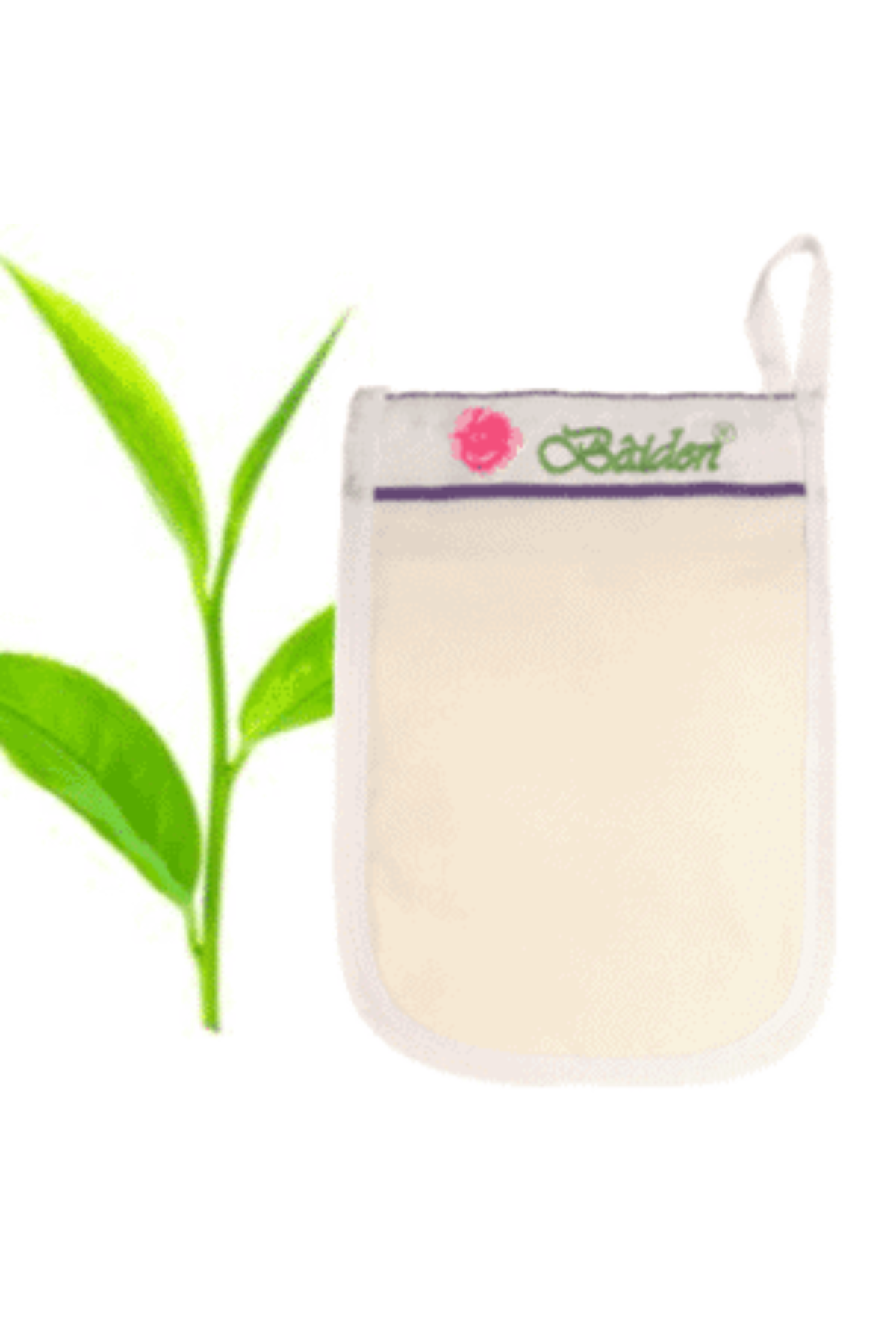
"I've used a Baiden Mitten for probably 15 years," says Piper. "I've had the same one, and I just wash it. It's held up really well. It's one of those Turkish bath mitts that is very satisfying to use and exfoliate the skin. I just put it in my regular laundry, and that sterilizes it."
Pros: Expert-approved; long-lasting; exfoliating; zero waste
Cons: May be too rough for already-irritated skin
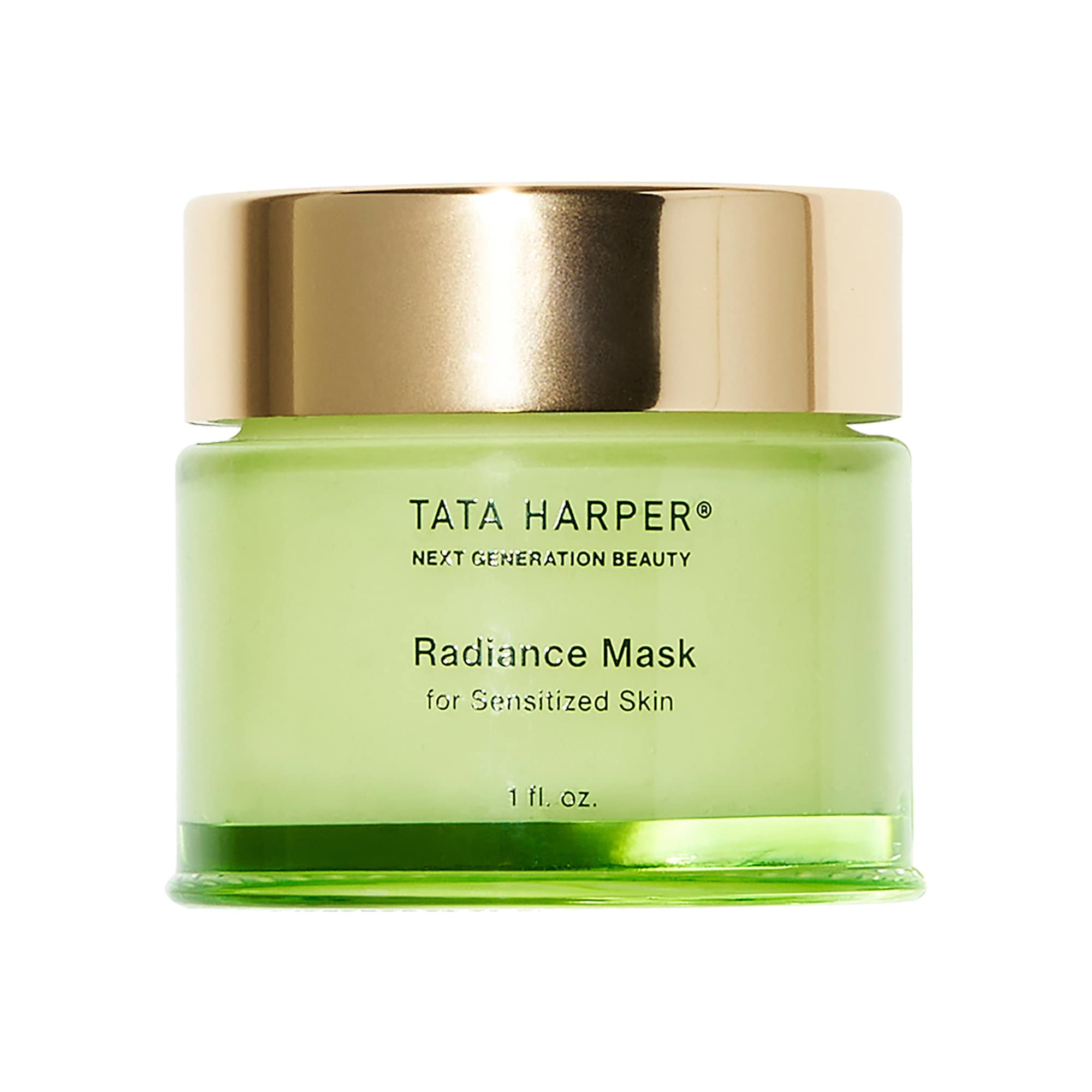
Popular skincare brand Tata Harper is cruelty-free and a member of the Forest Stewardship Council, American Vegan Association, and American Vegetarian Association. Plus, its products are ideal for those with sensitive skin: This radiance mask is free of potential irritants like fragrance, gluten, and parabens.
Pros: Vegan; gluten-free; fragrance-free; hypoallergenic; biodegradable packaging; Leaping Bunny certified
Cons: Expensive; contains chemical exfoliants, which may be too strong for those with a compromised skin barrier
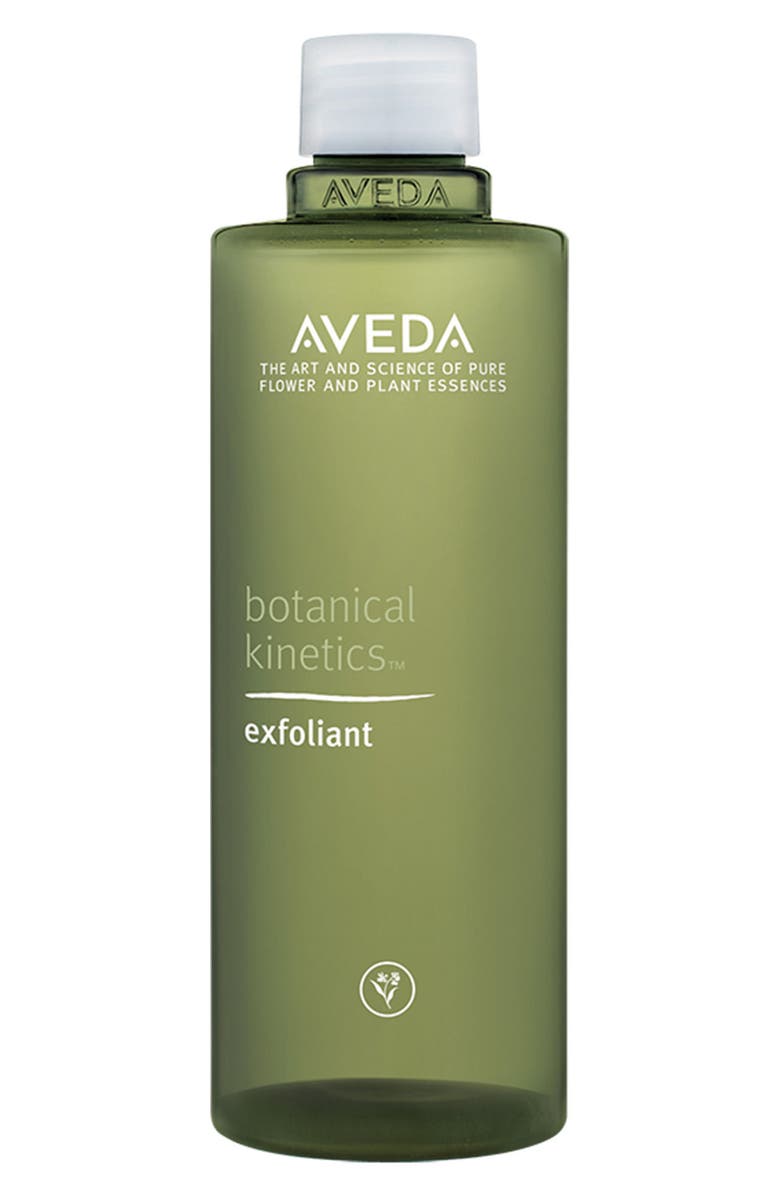
Aveda is famous for its haircare products, but don't underestimate its skincare. This exfoliant is ideal for sensitive skin because it cleanses away dead skin cells and brightens the complexion without irritating skin or stripping it of essential oils. It also uses 100 percent renewable energy to produce its products, so you can breathe a little easier about your carbon footprint.
Pros: Leaping Bunny certified; B-Corp certified; gentle; exfoliating; a little goes a long way
Cons: Comes in a plastic bottle
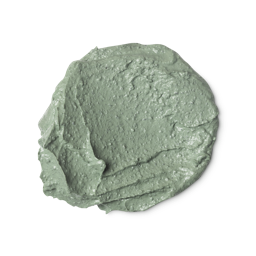
I've been a fan of Lush for as long as I can remember—especially their Mask of Magnaminty, the first mask I found that made a difference with my acne. "Lush has been on the forefront of doing sustainable things when they don't have to," Piper says. "They're very conscientious about ingredient sourcing. For instance, they researched natural mica and found how terrible the working conditions are in Indian mica mines—how they're treated and how it makes them sick—so they opted to stay with synthetic, water-soluble mica. "
Pros: Expert-approved; editor-approved; a little goes a long way; Leaping Bunny certified; Fair Trade
Cons: Expires sooner than most beauty products because of its natural ingredients
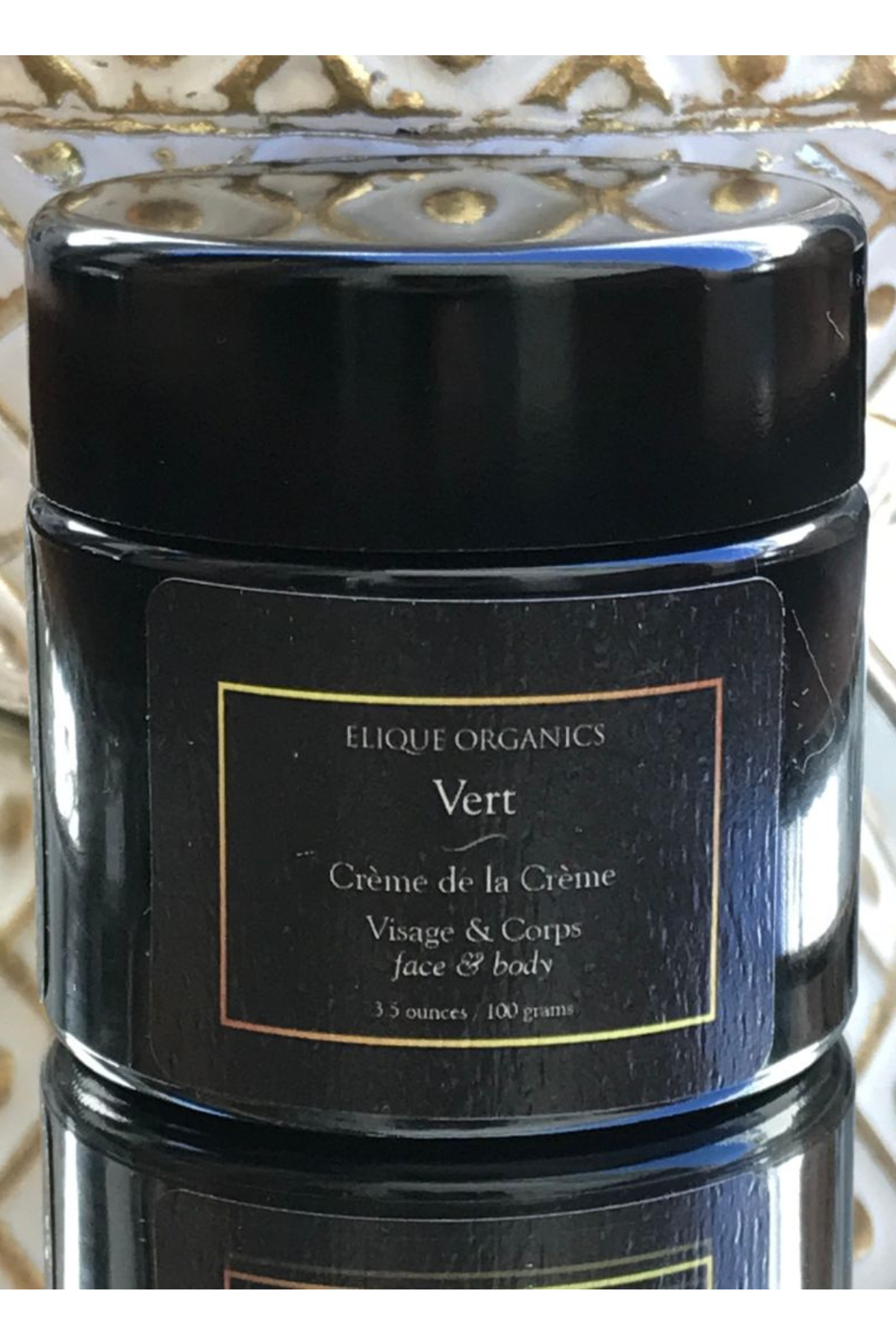
Arnett loves Elique Organics not only for its premium products but also for its values. "This cream is made with farmer's market honey and its founder is a Black Jewish woman who supports her local farmer's market and talks to the farmers about their bees and how important they are to our environment," she says. "This cream smells incredible and is all natural—she doesn't put anything synthetics into it either."
Pros: Expert-approved; supports local businesses; organic; BIPOC-owned
Cons: Expensive
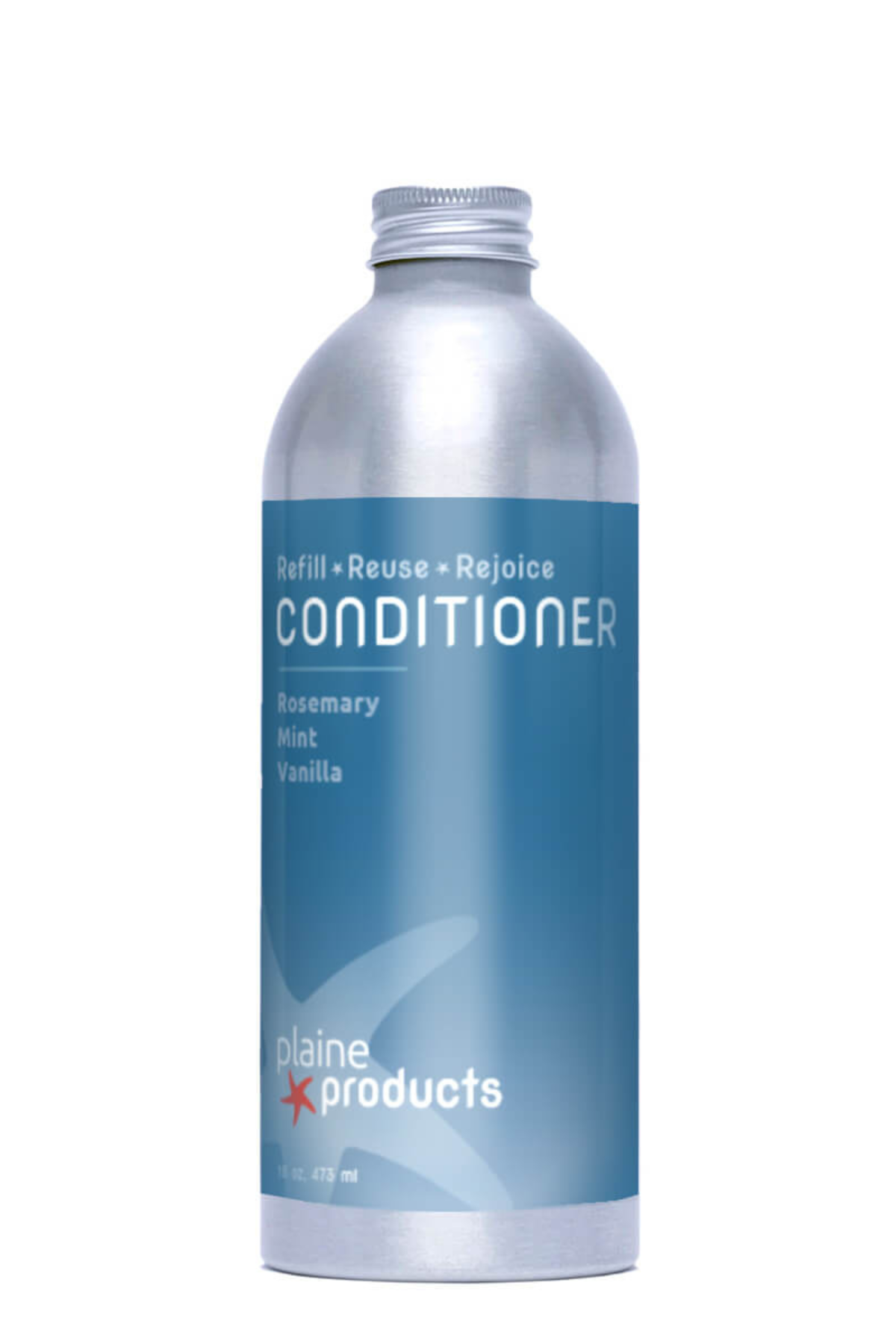
"Plaine Products has refillable body care and hair care in aluminum containers, so you never have to buy more stuff," Piper says of this no-nonsense, unisex brand. "This conditioner contains moisturizing ingredients like aloe vera and scalp-supporting ingredients like rosemary oil so that you can bet on results.
Pros: Expert-approved; refillable; three scent options (including unscented); Leaping Bunny certified; B-Corp certified; vegan; works on all hair types
Cons: A few reviewers with high-porosity hair wish it was more moisturizing
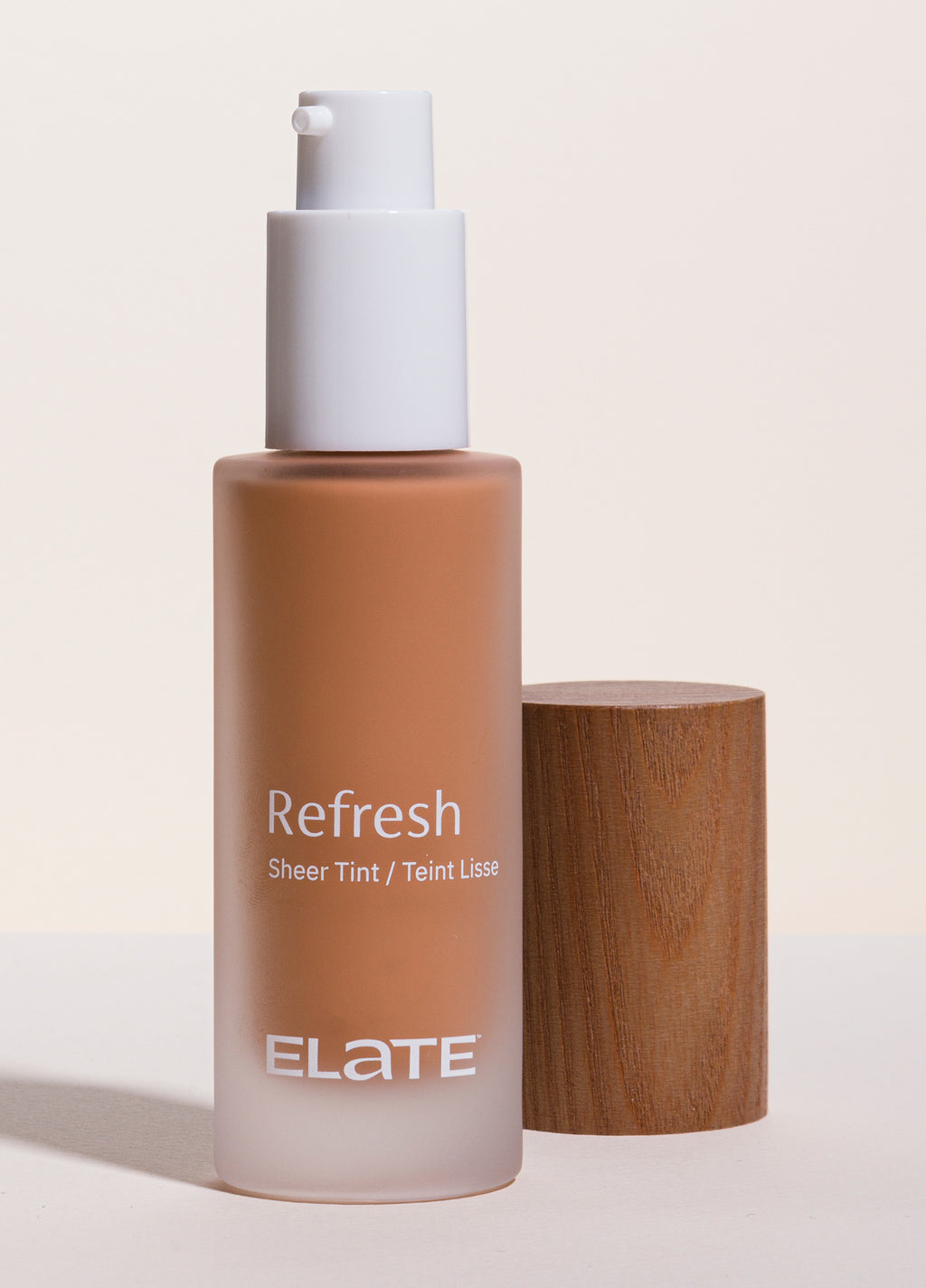
"I've used makeup by Elate Beauty for a while," Piper tells us. "They have refillable wood containers, and the cosmetics are all vegan and cruelty-free. The brand is also transparent about their ingredient sourcing, and the products perform pretty well." Arnett also recommends Elate Beauty, praising their reusable palettes and consistently high-quality packaging.
Pros: Expert-approved; clean; vegan; carbon neutral; refillable
Cons: Limited range of shades
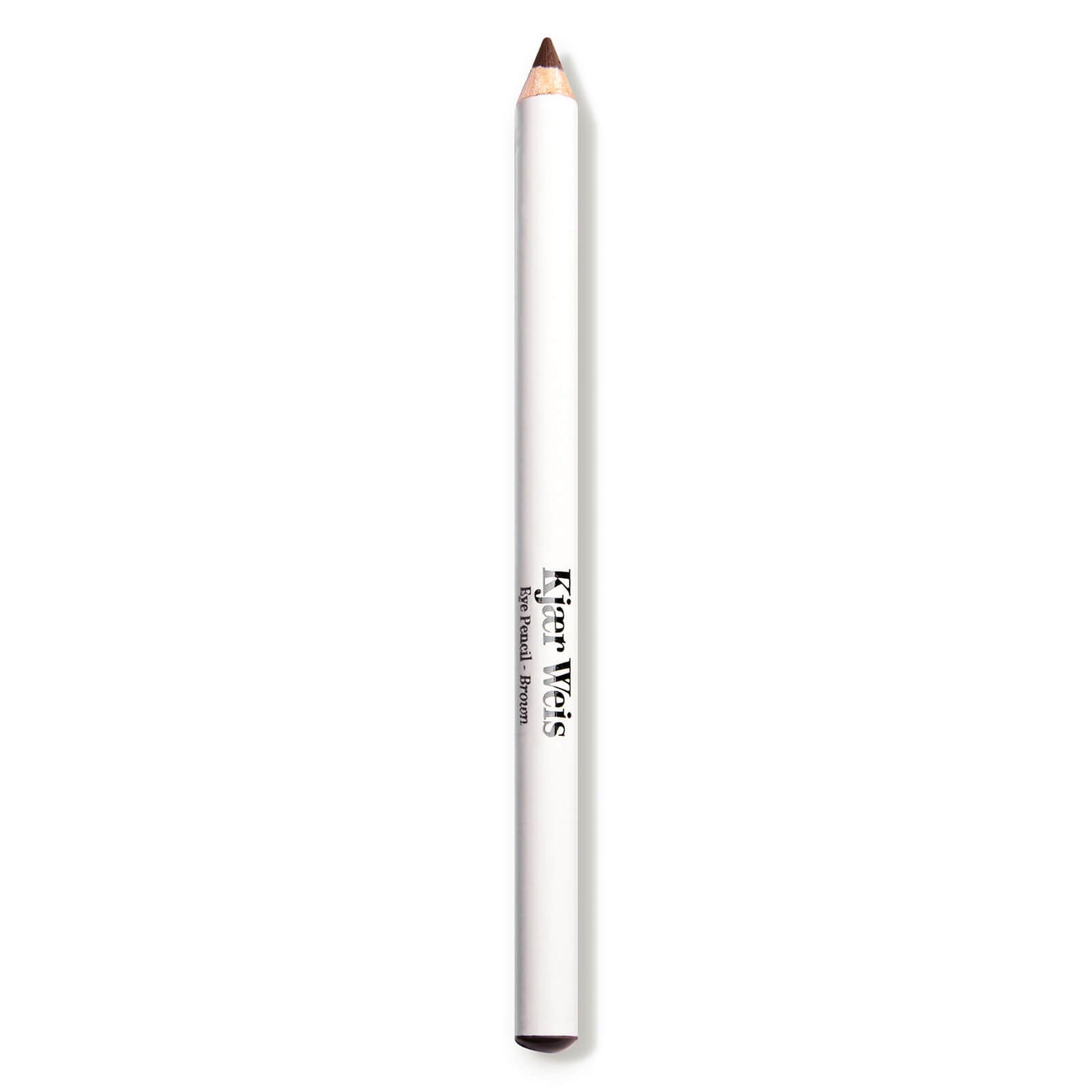
Opting for sustainability doesn't mean sacrificing luxury. Piper says, "If you want higher-end makeup, Kjaer Weis is always nice. Their stuff is refillable and recyclable in a lot of ways." This eye pencil, which comes in both black and brown, is refillable, and customers rave about its luxurious feel and waterproof finish.
Pros: Expert-approved; luxurious; refillable; comes in two colors; formulated with coconut oil, which is hydrating; waterproof
Cons: Expensive
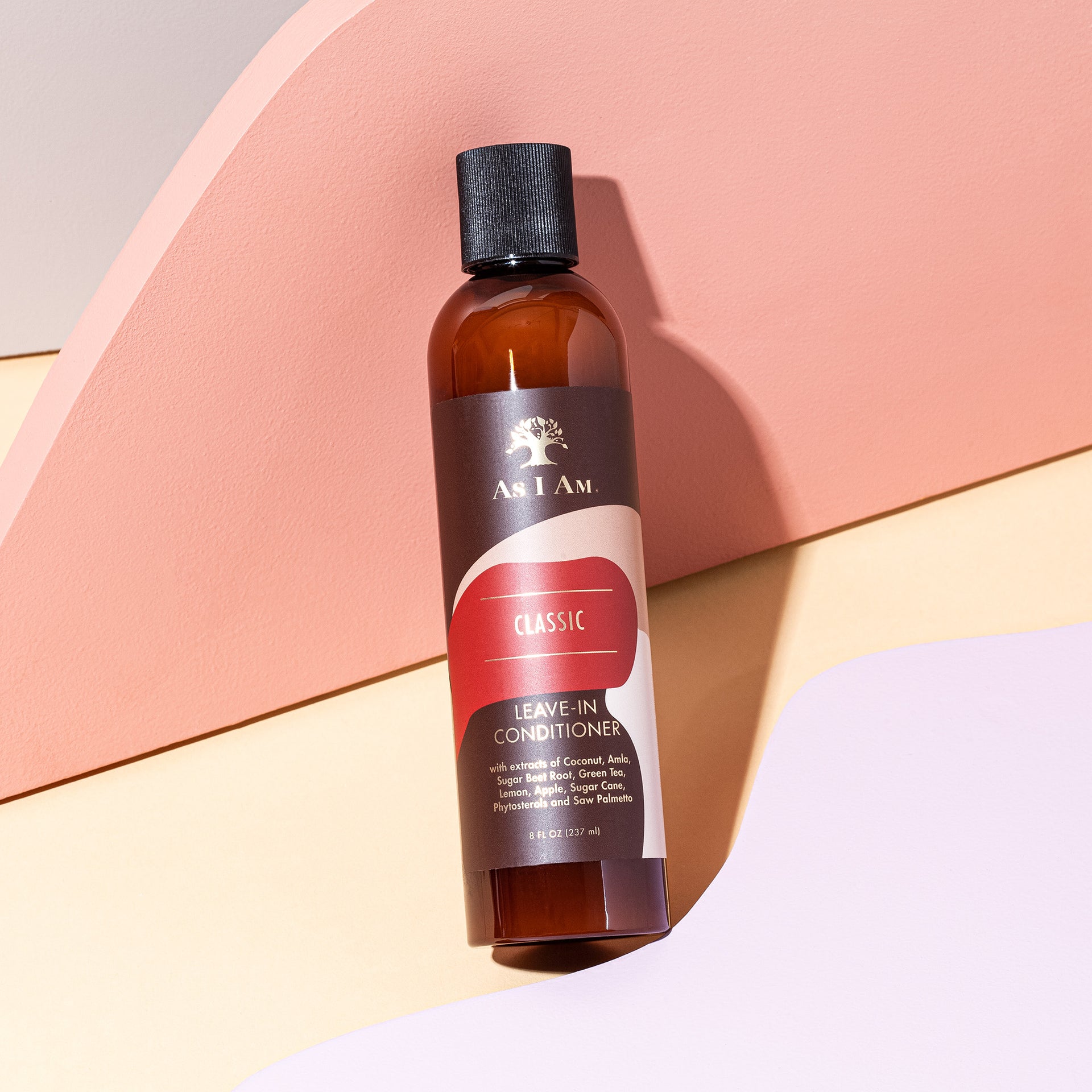
Refugee-founded brand As I Am sells a variety of personal care products, but I especially love their haircare line. The products make my curls feel soft and look shiny and defined. Plus, the brand is vegan and ethical, and even donates money to causes like Black Girls Code, Voto Latino, RAINN, and more.
Pros: Editor-approved; cruelty-free; ethical; charitable; made with textured and curly hair in mind; vegan
Cons: Plastic packaging
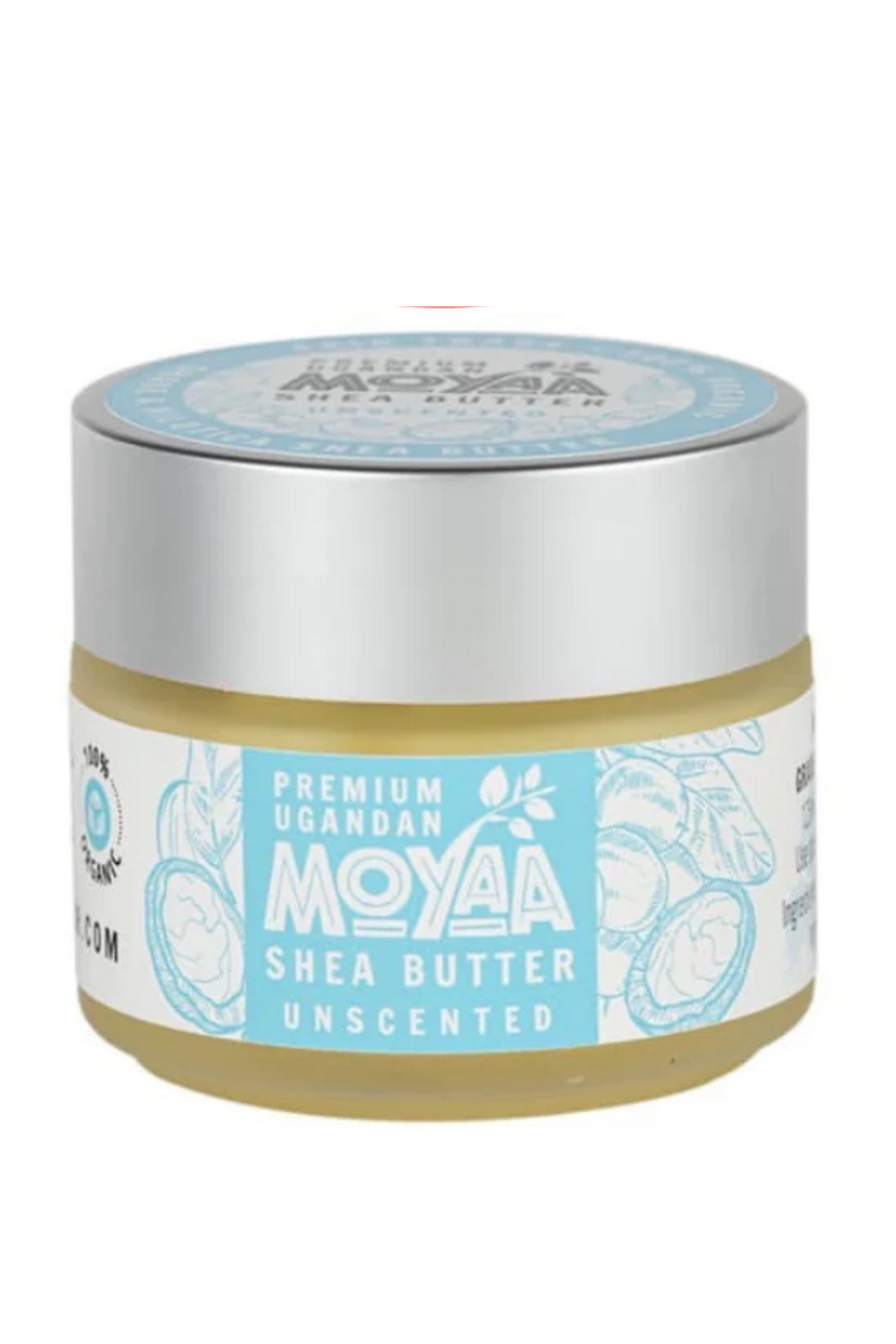
My hair and skin have never looked (or felt) better than when I used shea butter. It works wonders as a body lotion, leave-in conditioner, and chapstick, whether whipped or melted down. Because it's so rich, a little goes a long way, so one jar is bound to last you ages. This option from Moyaa is ethically and sustainably sourced, too.
Pros: Editor-approved; cruelty-free; ethical; multi-purpose; a little goes a long way
Cons: small jar
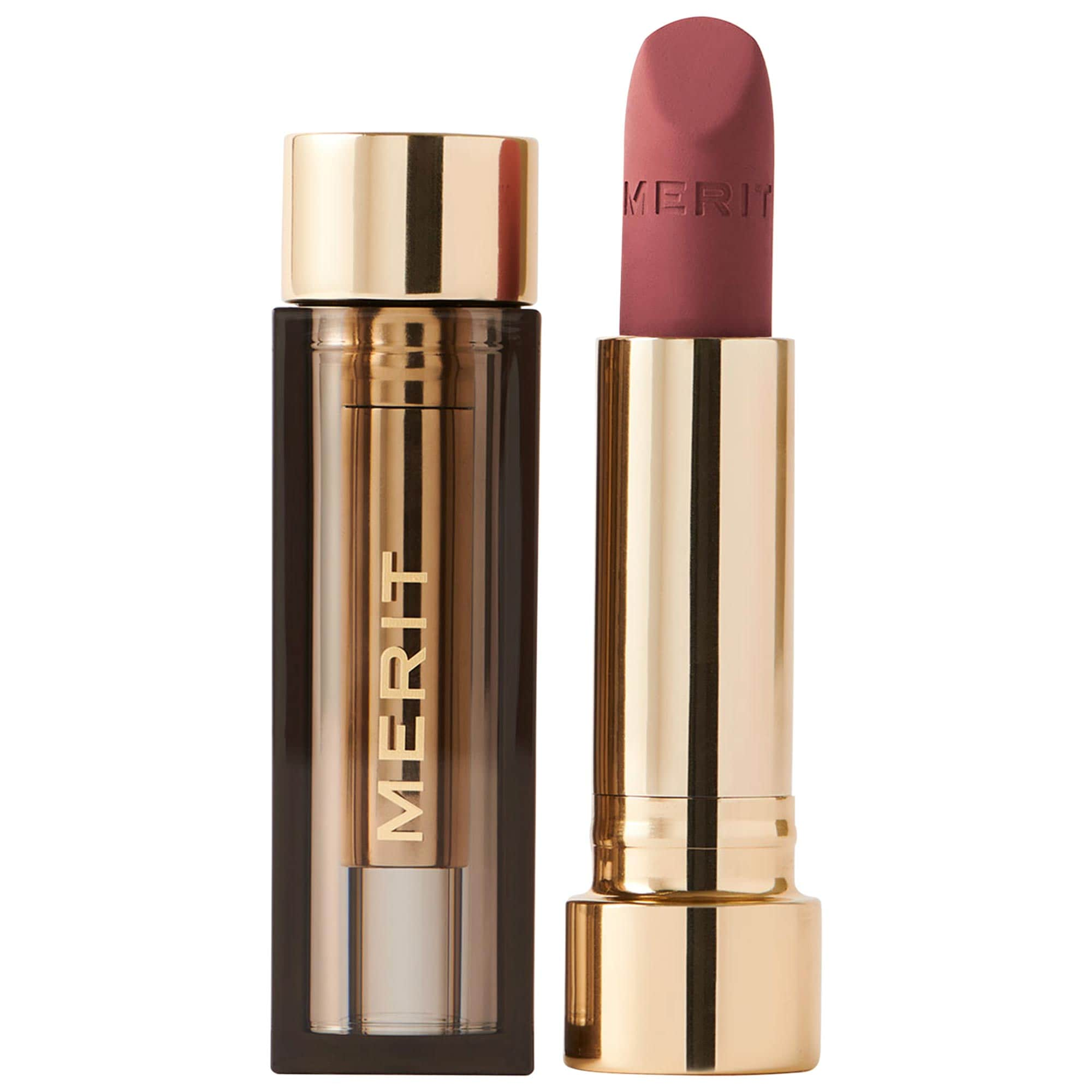
Merit Beauty is one of my favorite beauty brands, hands down. Their matte lipsticks are my favorite among their collection of eco-friendly products: They have a smooth, creamy texture that never dries out my lips, even after hours of wear, but the finish is so matte that friends have mistaken it for a liquid formula.
Pros: Editor-approved; Leaping Bunny certified; vegan; high performance
Cons: Limited range of colors
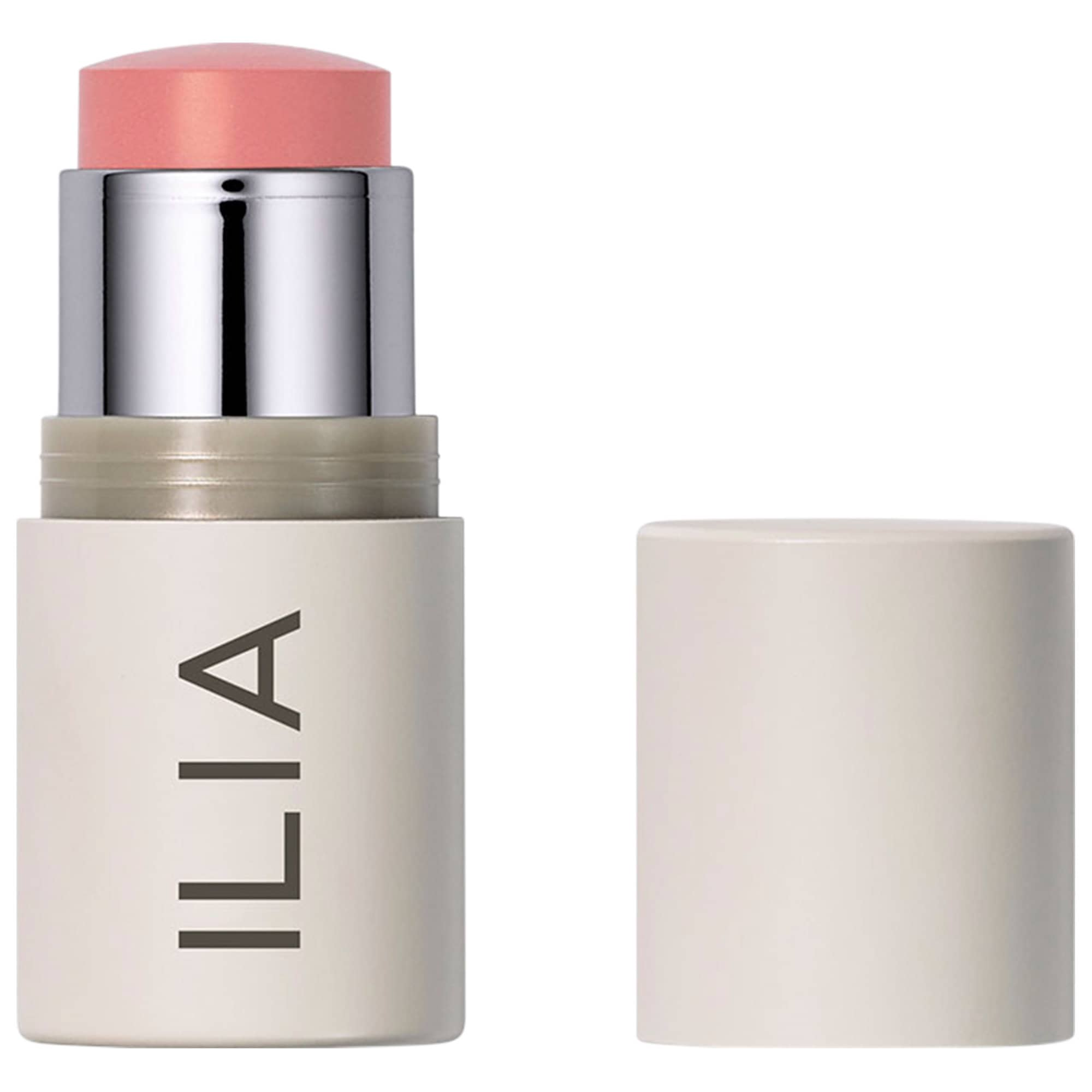
As Piper said, multi-use products are ideal if you're looking to make your beauty routine more planet-friendly. This handy stick from Ilia makes applying blush and lip tint easier than ever, and it's the perfect size for travel. Ilia is also Leaping Bunny certified, and it actively donates funds to environmental causes, focusing especially on combatting deforestation.
Pros: Multi-purpose; Leaping Bunny certified; charitable; travel-friendly
Cons: High price for a small container
How to Create an Eco-Friendly Beauty Routine
Piper admits it can feel overwhelming to combat animal cruelty, plastic pollution, and human rights at once, saying there's no such thing as a perfectly sustainable beauty routine. Instead, what's important is that customers stay mindful and do their best.
Arnett and Piper urge consumers to opt for eco-friendly products, though they warn users to proceed cautiously when reading labels. "There are no reliable, standardized certifications out there that make a product 'sustainable,'" says Piper, adding that while the Federal Trade Commission recently cracked down on some of the terminology among large businesses, much of the faux eco-friendly marketing terminology (often known as "greenwashing") still goes unregulated.
Below, find their tips for shopping eco-friendly.
Don't Buy Excess Products
Piper and Arnett also advise against completely overhauling your existing beauty routine. They note that throwing away all your half-empty or unused beauty products is wasteful, so you should finish what you own before buying anything else. You should invest in something new only once you've completed everything in front of you.
Get exclusive access to fashion and beauty trends, hot-off-the-press celebrity news, and more.
Use Multi-Purpose Products
Piper recommends multi-use products, such as pigments that can be used on the lips, eyes, cheeks, or liners that can be used on both the eyes and brows. Arnett adds that multi-use products generate less waste, decrease clutter, save money, and simplify your routine.
Look for Sustainable Ingredients
Many products claim to be sustainable but these statements are often unchecked. To examine these claims more closely, Arnett and Piper suggest examining the ingredients. "Take a moment to really investigate," suggests Arnett. "Does this company just rely on imagery that makes you feel better? Like a leaf, or a farm, or a dew drop. Turn the package around and look at the ingredients."
Piper agrees, adding that there are specific third-party certifications customers can rely on. "I would recommend looking for more of those tried-and-true certifications like the PETA bunny, the Leaping Bunny, the Fair Trade symbol, and the vegan symbol," she says. "Those all require a lot of monitoring, and they're also expensive for companies to acquire."
Greenwashing also exists with regards to how companies source their ingredients. Arnett says that while plastic-neutral and carbon-neutral designations are better than nothing, they're still not as meaningful as regenerative, plastic-negative, and carbon-negative designations.
Examine the Parent Company
Piper says to also look at the parent companies of your go-to brands, noting that while particular brands may not test on animals, they're owned by larger organizations that test on animals, source their ingredients unsustainably, or have unethical manufacturing practices. Arnett adds, "I don't think anything in the aisles of any mass market department drug store is sustainable."
Opt for Sustainable Packaging
While many recyclable packaging options on the market, Arnett suggests prioritizing refillable options.
When you can't get a refillable option, though, Piper recommends finding products with little to no packaging like loose bar soaps. "I place emphasis on the least amount of packaging possible," she says, "If there has to be packaging, I want that packaging to be compostable, reusable, or, at the very least, recyclable." For example, she prefers glass bottles and jars, which can be reused, over plastic packaging. She especially cautions against mixed material packaging (such as a pump, which is made from glass, plastic, and metal), noting they're notoriously difficult to recycle in a traditional system.
Regarding compostable packaging, Arnett says to pay attention to how long it takes to compost. For instance, she says that most compostable materials take around 300 years to decompose, which does little to mitigate the impact of pollution in the short term.
Meet the Experts
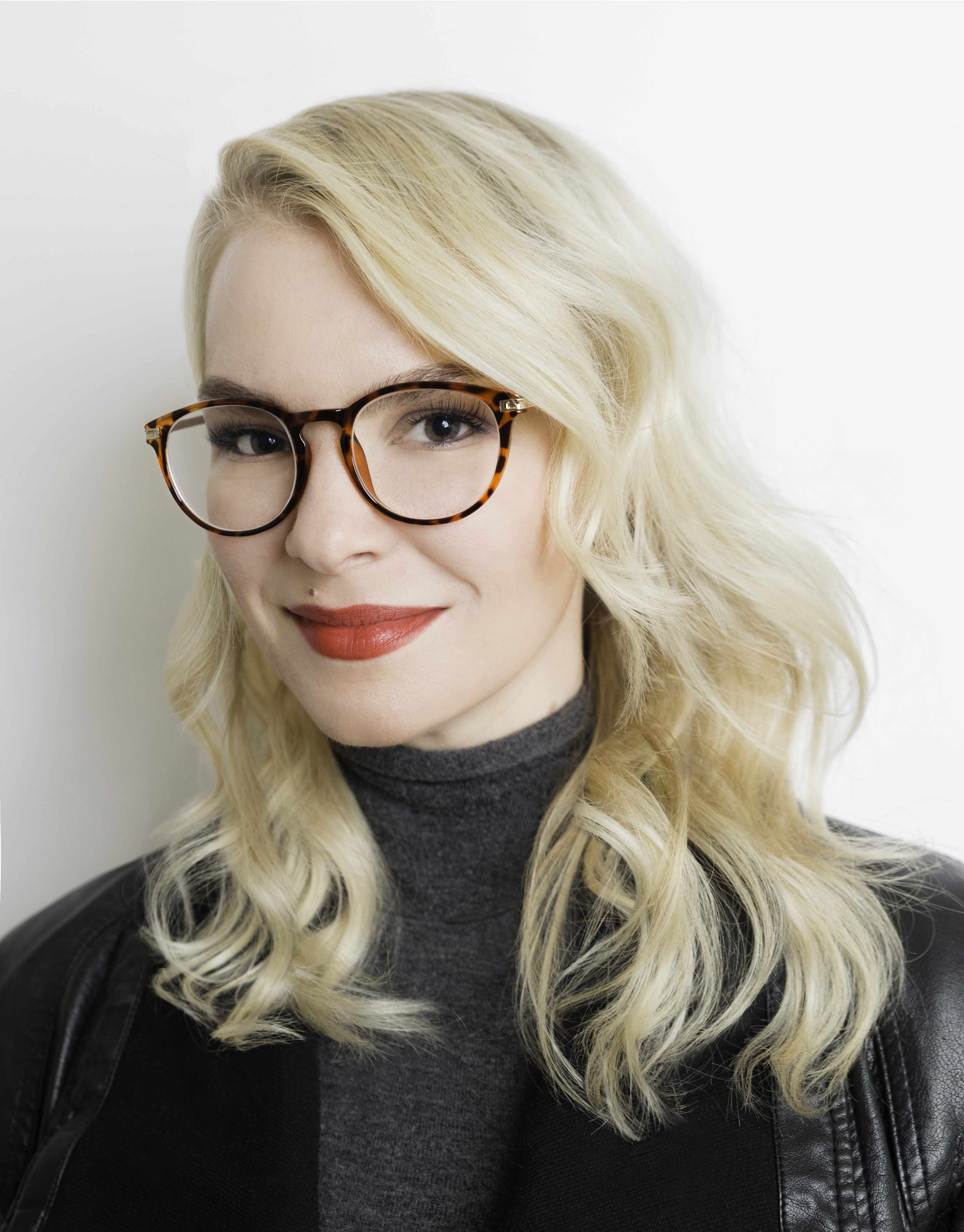
Ashlee Piper is a sustainability expert, TV personality and author whose work has been featured on over 200 television segments, including The TODAY Show, Good Morning America, LIVE with Kelly & Ryan and CNN, and in VOGUE, The New York Times, The Washington Post, The Atlantic and Newsweek. Piper's book, Give A Sh*t: Do Good. Live Better. Save the Planet. has been hailed as a 'sustainability Bible' by celebrities and reviewers.
Piper is a Professor of Sustainability Marketing at Loyola University Chicago, and holds a BA from Brown University and an MA from the University of Oxford, UK.
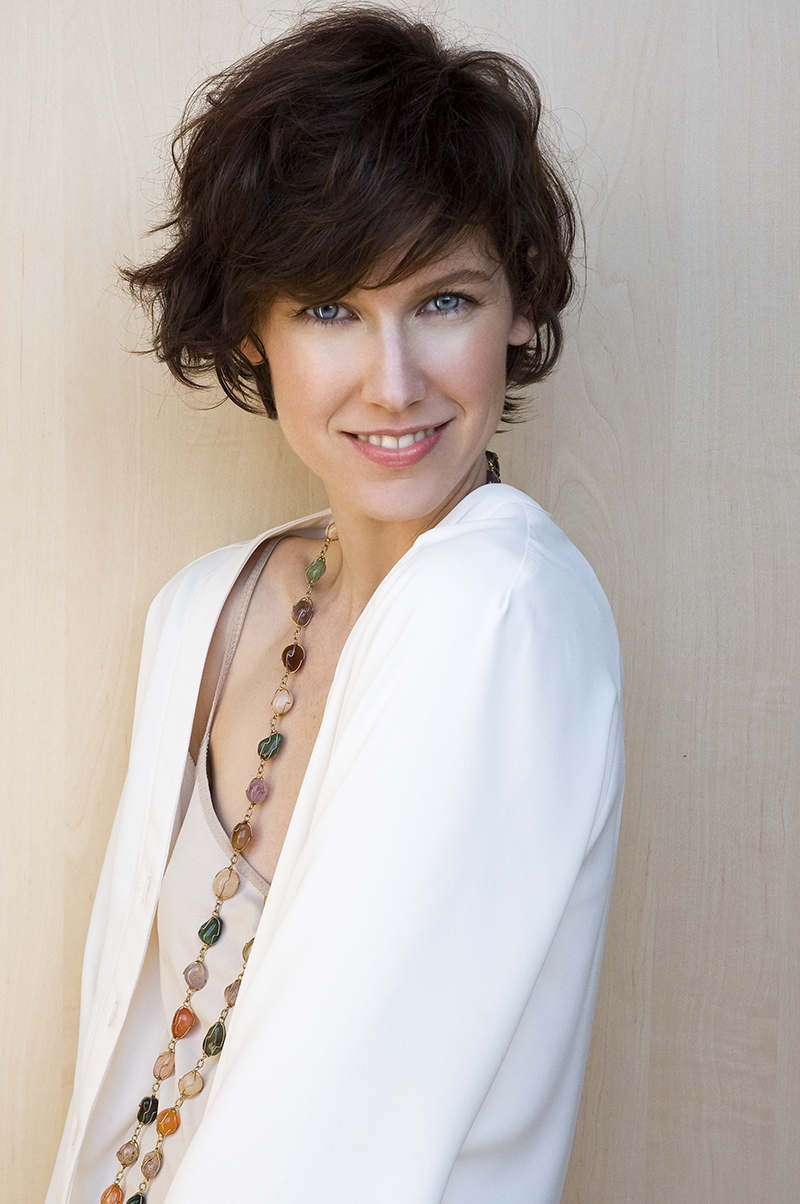
Kristen Arnet spent years traveling the world as a celebrity makeup rtist before turning her attention to sustainability. Now she is a green beauty educator who specializes in helping women over 40 look and feel their best.
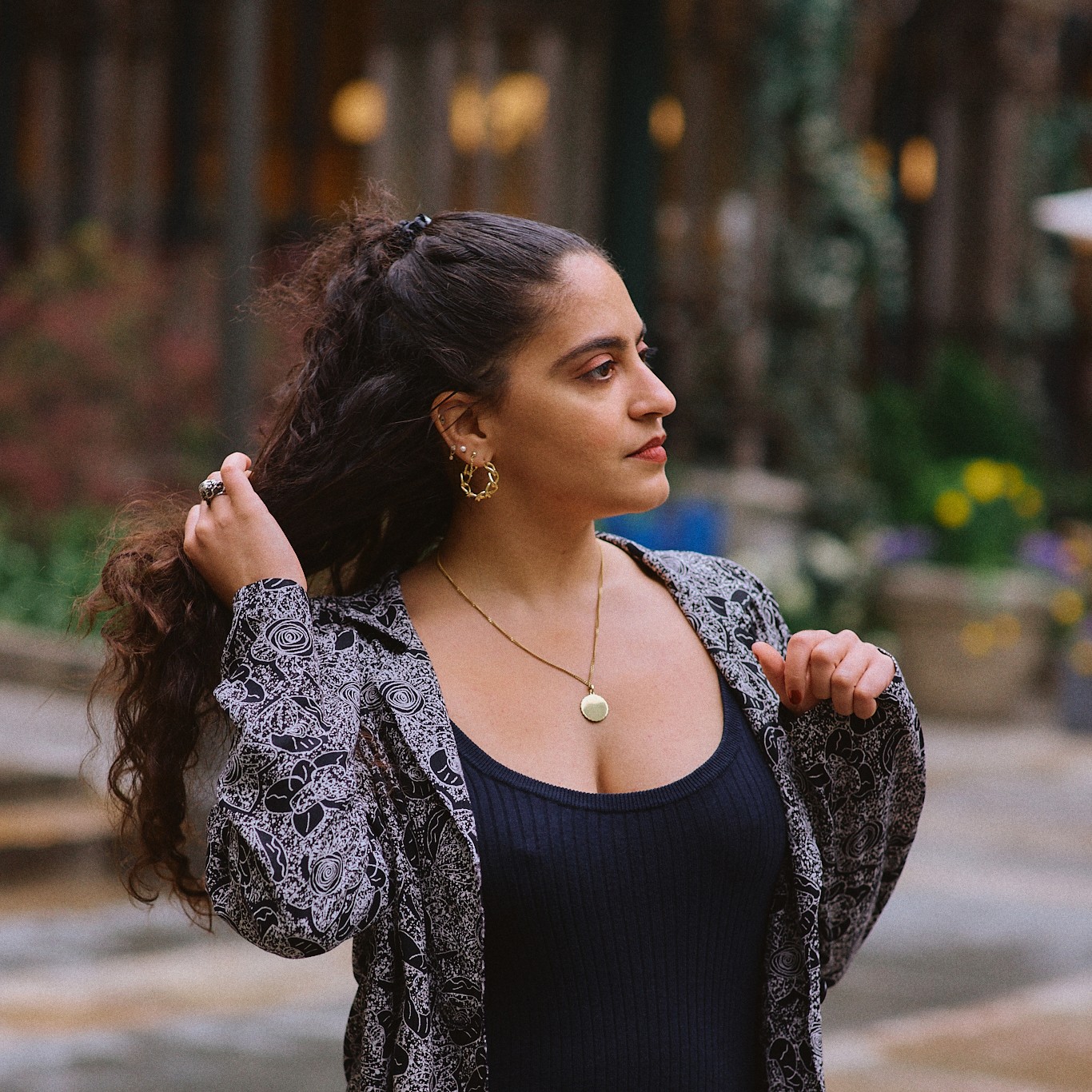
Gabrielle Ulubay is a Beauty Writer at Marie Claire. She has also written about sexual wellness, politics, culture, and fashion at Marie Claire and at publications including The New York Times, HuffPost Personal, Bustle, Alma, Muskrat Magazine, O'Bheal, and elsewhere. Her personal essay in The New York Times' Modern Love column kickstarted her professional writing career in 2018, and that piece has since been printed in the 2019 revised edition of the Modern Love book. Having studied history, international relations, and film, she has made films on politics and gender equity in addition to writing about cinema for Film Ireland, University College Cork, and on her personal blog, gabrielleulubay.medium.com. Before working with Marie Claire, Gabrielle worked in local government, higher education, and sales, and has resided in four countries and counting. She has worked extensively in the e-commerce and sales spaces since 2020, and spent two years at Drizly, where she developed an expertise in finding the best, highest quality goods and experiences money can buy.
Deeply political, she believes that skincare, haircare, and sexual wellness are central tenets to one's overall health and fights for them to be taken seriously, especially for people of color. She also loves studying makeup as a means of artistic expression, drawing on her experience as an artist in her analysis of beauty trends. She's based in New York City, where she can be found watching movies or running her art business when she isn't writing. Find her on Twitter at @GabrielleUlubay or on Instagram at @gabrielle.ulubay, or follow her art at @suburban.graffiti.art